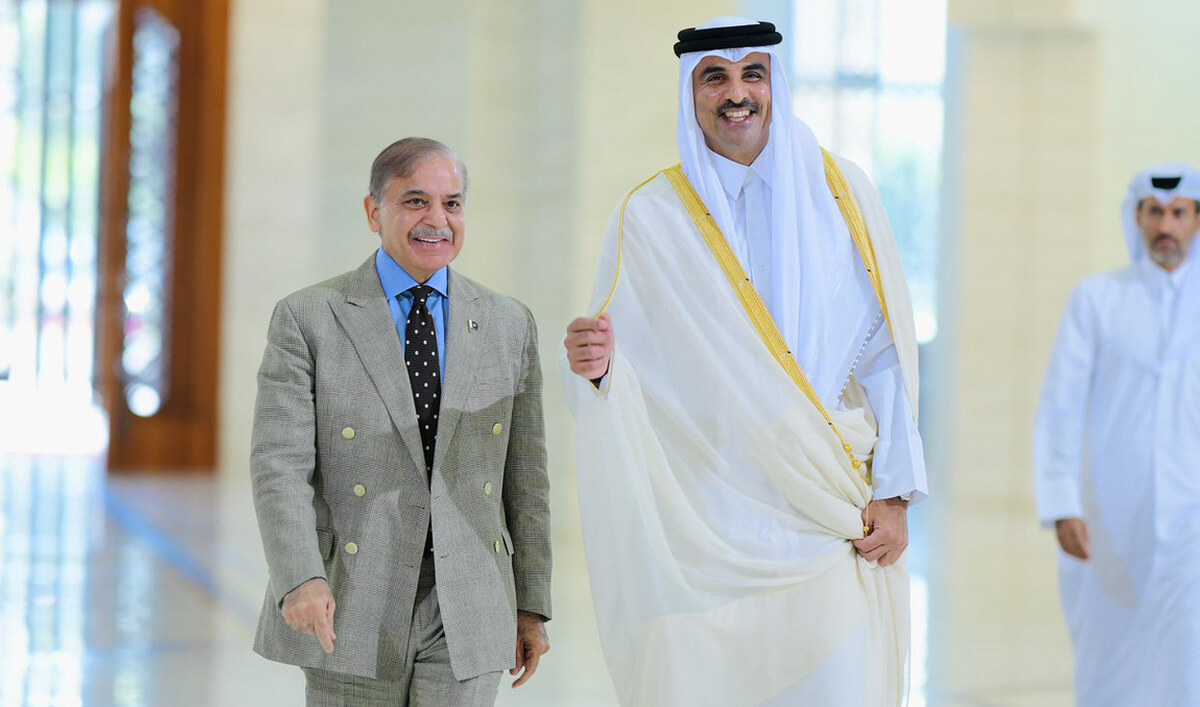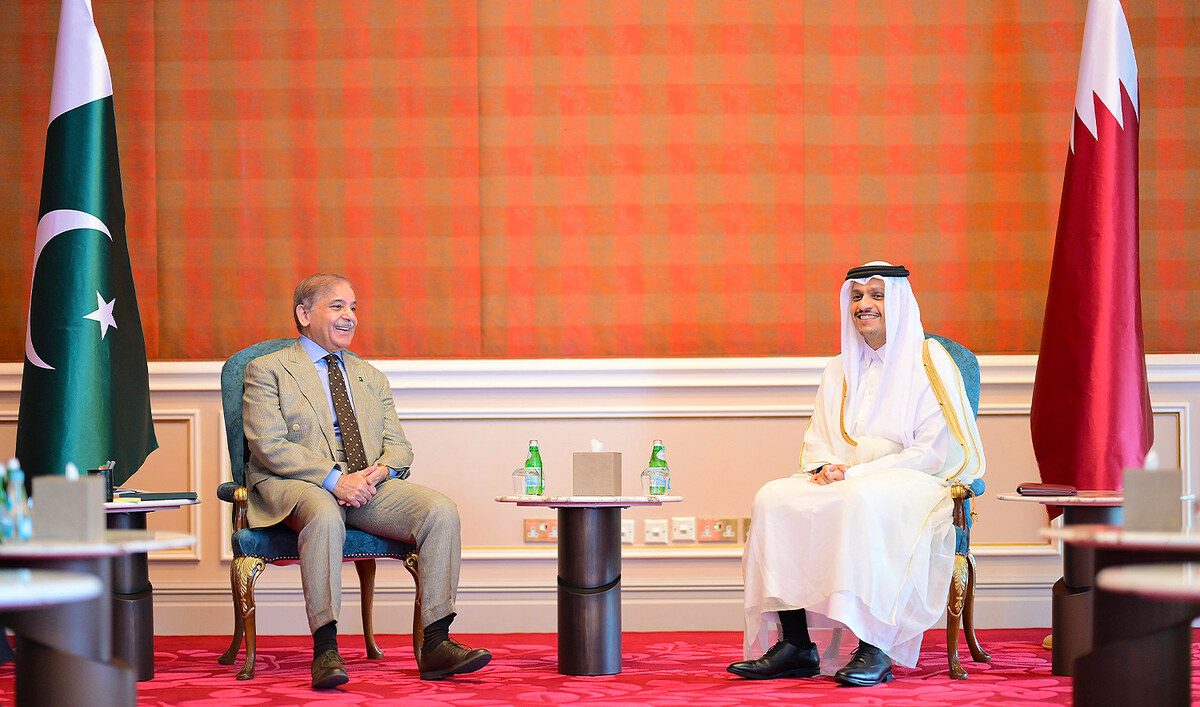ISLAMABAD: Prime Minister Shehbaz Sharif on Thursday met Qatar’s Emir Sheikh Tamim bin Hamad Al Thani and his counterpart from the oil-rich Arab state in separate meetings, with both sides discussing the importance of strengthening bilateral collaboration in trade, investment, energy and other sectors.
Sharif’s visit to Qatar, which began Wednesday, seeks to bolster economic cooperation as Pakistan looks to foreign investment to stabilize its economy. In 2022, the Qatar Investment Authority committed $3 billion for projects in Pakistan, spanning airport management, renewable energy and hospitality.
Qatar has also explored partnering with Pakistan in managing the Roosevelt Hotel in New York, owned by Pakistan International Airlines.
Sharif led delegation-level talks with Sheikh Al Thani before holding a separate meeting with him to discuss a wide array of issues, the Prime Minister’s Office (PMO) said.
“The leaders reviewed the entire spectrum of Pakistan-Qatar relations, exploring potential avenues for enhanced cooperation in trade, potential areas of investment, energy, and culture,” the PMO said.

Pakistan Prime Minister Shehbaz Sharif meets Amir of Qatar Sheikh Tamim bin Hamad Al Thani in Doha on October 31, 2024. (PMO)
The two leaders also reaffirmed their commitment to deepening strategic ties, underscoring the importance of shared economic goals and regional stability, it added.
Sharif and Sheikh Al Thani discussed Israel’s ongoing “genocidal” war in Gaza and the escalation of tensions in the Middle East, the PMO said.
The Pakistani premier praised Qatar’s efforts to broker an immediate ceasefire in Gaza, Sharif’s office added.
Sharif later visited a gallery of Pakistani artworks titled “Manzar: Art and Architecture of Pakistan from 1940s to Today” in the National Museum of Qatar, state-run Associated Press of Pakistan (APP) said.
Both leaders traveled together to the museum where Sheikh Al Thani and his sister Sheikha Al-Mayassa bint Hamad bin Khalifa Al-Thani, who is also the chairperson of Qatar Museums, showed the prime minister the artworks in the exhibition.
The artworks of Shakir Ali, Sadeqain, Gulgee, Zubaida Agha, Kamil Ali Mumtaz, Nayyar Ali Dada and several other Pakistani artists were displayed in the exhibition.
SHARIF MEETS QATARI COUNTERPART

Pakistan Prime Minister Shehbaz Sharif (left) meets Prime Minister of Qatar, Sheikh Mohammed bin Abdulrahman Al-Thani, in Doha, Qatar on October 31 2024. (Ministry of Foreign Affairs)
Sharif earlier held extensive talks with his counterpart Sheikh Mohammed bin Abdulrahman Al-Thani, focusing on strengthening bilateral ties through enhanced trade, investment, energy and cultural collaboration, according to an official statement issued in Islamabad.
“Prime Minister Sharif acknowledged Qatar’s contributions to Pakistan’s economic growth and expressed gratitude for its continued support in various sectors,” the PMO said.
“He thanked his Qatari counterpart for hosting a large Pakistani diaspora who act as a human bridge between the two brotherly countries.”
Pakistan’s foreign office spokesperson Mumtaz Zahra Baloch said during her weekly news conference that Sharif’s meetings in Doha will primarily focus on trade and investment and regional discussions.
Before arriving in Doha, Sharif attended the Future Investment Initiative in Riyadh, Saudi Arabia, where he discussed trade and investment with Saudi Crown Prince Mohammed bin Salman.
The talks built on recent agreements worth $2.8 billion, including investments in agriculture, semiconductor manufacturing, and energy, aimed at strengthening Pakistan’s economy and deepening ties between the two nations.















